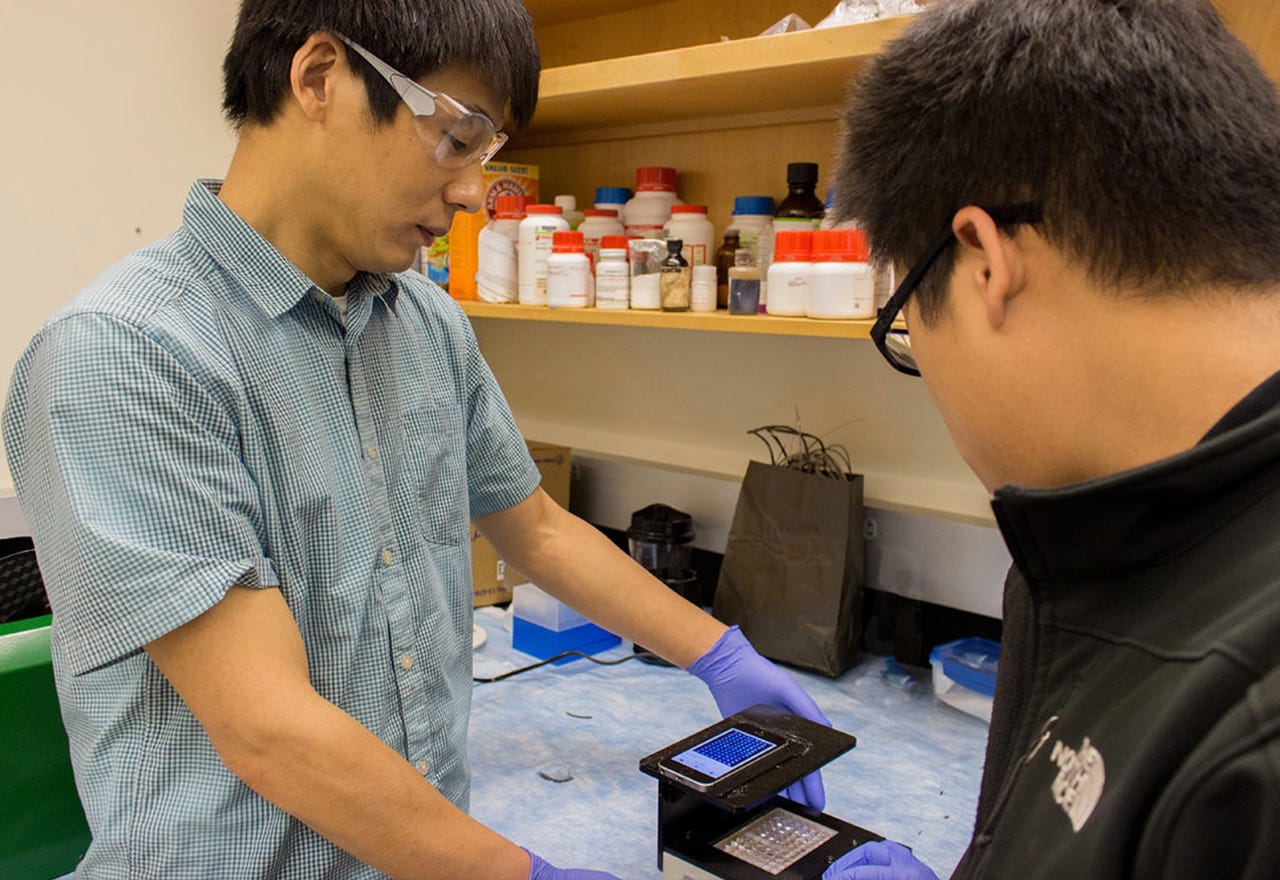Laboratory on-a-phone detects viruses, bacterial infections


Researchers have developed a portable laboratory on-a-phone which could provide improved healthcare for rural, remote, and developing areas.
Featured
According to Washington State University scientists, the miniature laboratory has close to the same success as traditional lab testing.
In tests with 771 patient samples of 12 common viral and bacterial infectious diseases, the lab equipment only returned false positives on average one percent of the time.
In total, the smartphone lab was 97 to 99.9 percent accurate.
The device, which is the size of an average human hand, includes a smartphone reader and camera which takes photos of sample wells. These images are then analyzed by computer software to determine positive or negative results.
The smartphone laboratory is low-cost, too, and was built using components worth roughly $50 -- although commercial manufacturing could further bring down the cost.
The researchers believe that the device could lead to quicker and more effective diagnosis and treatment. The device may not only be a useful alternative to traditional lab tests in rural and developing areas -- as samples must often be sent away for diagnosis -- but may also prove to be invaluable equipment for healthcare professionals working in areas of fast-moving viral and bacterial epidemics.
The research has been published in the academic journal Clinica Chimica Acta.
See also: These tattoos only become visible when detecting cancer-linked disease
"This smartphone reader has the potential to improve access and speed up healthcare delivery," said Lei Li, assistant professor in the School of Mechanical and Materials Engineering and lead author of the study. "If we find out about infections, we can treat them more quickly, which makes a difference especially in low-resource, remote areas."
A patent has been filed and the team hopes to begin clinical trials soon.